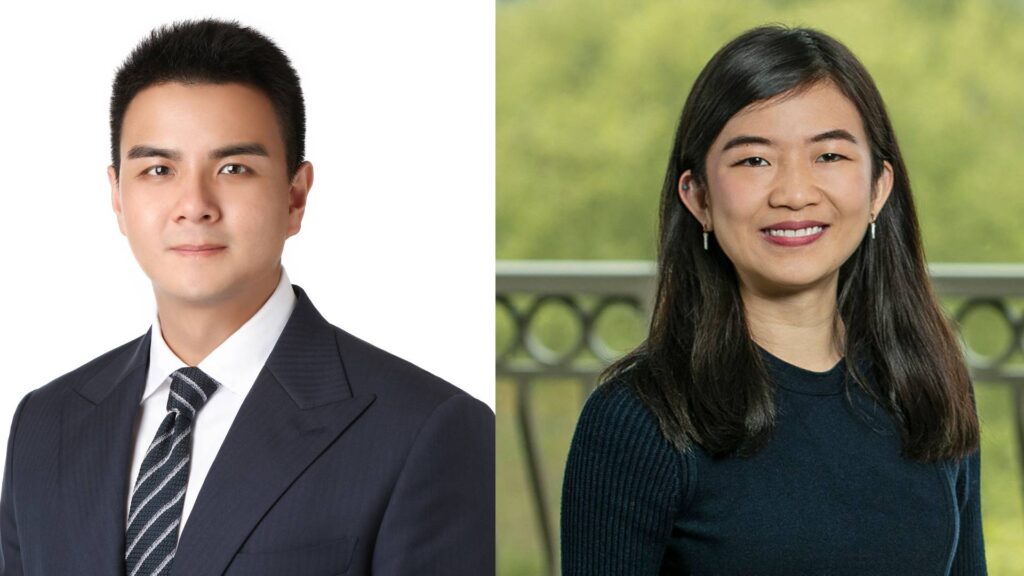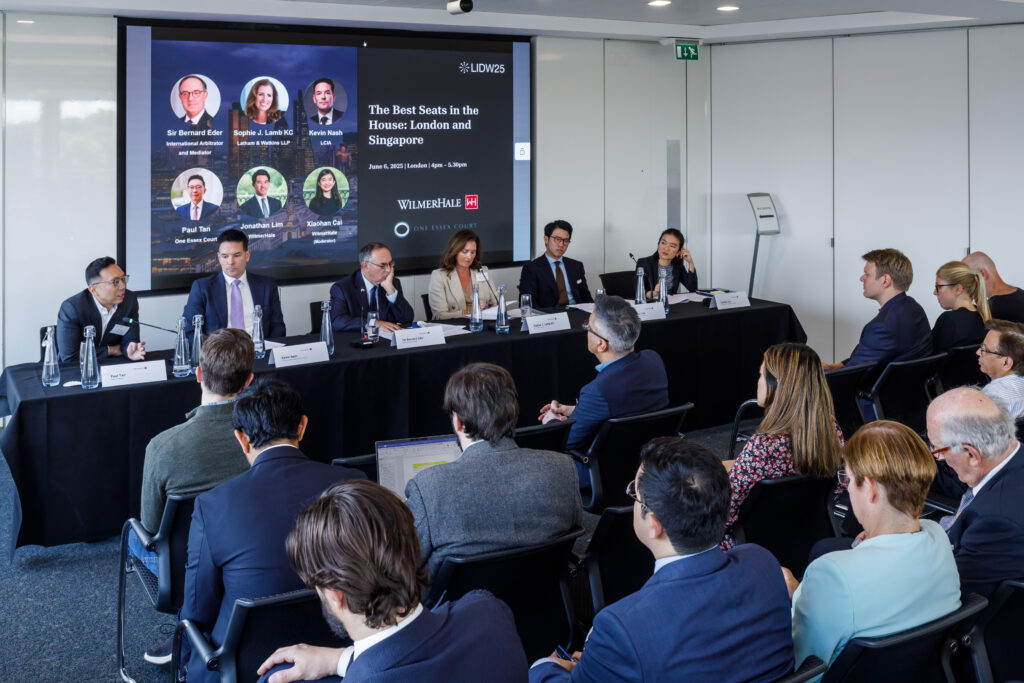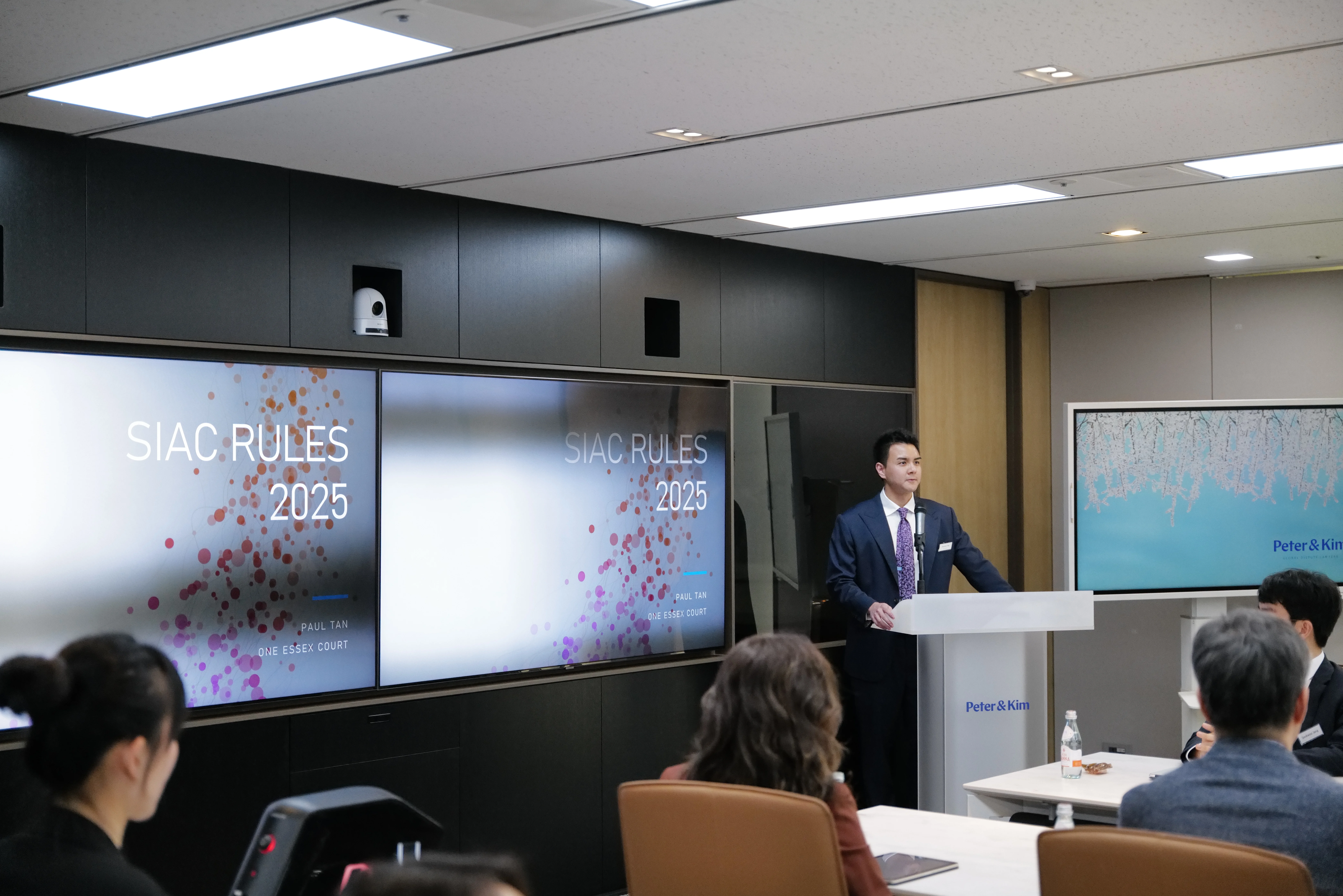Brandon Yap, Cai Xiaohan: From Singapore to the World

When Mr Brandon Yap, 32, boarded a flight to Seoul in early 2024 to join an international arbitration firm, he was taking a step into the unknown: leaving Singapore after five years at Drew & Napier LLC. Two years earlier, Ms Cai Xiaohan, 30, had done the same, moving from a busy practice in Rajah & Tann Singapore LLP to WilmerHale’s arbitration team in London.
Both belong to a generation of young
Singaporean lawyers for whom being an international lawyer is not simply rhetoric.
Through intentional and thoughtful career decisions, they embody the vision of
a global Singaporean lawyer.
Taking the Leap
By late 2021, Xiaohan had chalked up three years of experience at Rajah & Tann and felt the time was ripe to move overseas and broaden her horizons. On how she ultimately made the leap, she shared, “When I applied to WilmerHale, I was keen to explore opportunities overseas to broaden my horizons. To my mind, there were only upsides and no downside to moving then.”
Her decision was also shaped by an earlier internship at the firm. “I already knew that the firm is one of the best in the world to practise arbitration, with genuinely nice people and a collegiate culture.” The timing, she adds, was ideal. “I had a few years of experience under my belt and was not yet at the stage where there were
expectations to bring in business.”
Still, leaving the familiarity of home was daunting—a view echoed by Brandon, who joined Peter & Kim in Korea. “Drew & Napier was the foundation of my career,” he reflects. “I was fortunate to have mentors who encouraged me to take calculated risks. One senior partner told me that international experience would soon be essential for Singapore lawyers – and that working abroad would expand both my perspective and the value I could deliver to clients. That gave me the conviction to make the move.”

Listening and Learning Abroad
Both Xiaohan and Brandon stress that the desire to gain overseas experience must be accompanied by a willingness to navigate the unfamiliar.
Despite being half-Korean, Brandon still had to learn to navigate the subtleties of Korean professional culture. “Communication in Korea tends to be layered and nuanced,” he explains. “The concept of nunchi – a finely tuned awareness of timing, context and unspoken signals – plays a central role in how decisions are made. I’ve learned to listen more deeply and to be attentive to what is implied rather than explicitly stated. For example, an indirect remark from a client during a meeting may, in practice, signal a genuine request or strategic direction – something that must be understood and acted upon naturally.”
Xiaohan similarly discovered that communication in London comes with its own unspoken codes. A comment of “quite good” delivered in classic British politeness can mask disappointment. Over time, and a few pints, she learned to read between the lines.
Both lawyers approached the challenge of building a community from scratch with intentionality. For Brandon, what began with industry events evolved into genuine friendships. Xiaohan learnt to build community—cold-calling Singaporeans, showing up to events alone, and forging connections with everyone in her office, from interns to security guards.

Identity and Ambition
Brandon and Xiaohan share a fierce pride in their Singaporean training. “The training I received at Drew has allowed me to operate confidently in a more advanced role overseas,” says Brandon. “From the start of my career, I worked on cross-border disputes involving clients from different legal systems and industries. What marked those years most was training at a firm with a commitment to developing real advocates. Disputes work was treated as a craft: methodical, rigorous, constantly refined. That approach became fundamental to how I practice.”
Xiaohan echoes this sentiment, noting, “Some of the best lawyers I’ve ever worked with are Singaporean.” She still identifies closely with her alma mater, Rajah & Tann Singapore LLP: “They once told Global Arbitration Review that their competitors aren’t just other Singapore firms, but international firms in the UK and US. That’s what I aspire towards too—to build a practice with a fiercely Singaporean identity, on par with lawyers in London and New York.”
Both lawyers see their overseas journeys as a stepping stone towards a deeper, more outward-facing Singaporean legal practice.
Brandon intends to take on a larger role in shaping the future of international disputes, particularly in the evolving arena of investor–state dispute settlement. His time in South Korea has broadened his appreciation of how different legal cultures approach complex problems. He believes Singapore’s continued success as a global dispute resolution hub will depend on attracting international talent, enabling Singaporean lawyers to gain meaningful overseas experience, and fostering genuine competition that raises professional standards. He hopes to play a part in that global evolution when he returns to Singapore.
Xiaohan’s goals similarly extend beyond her own career trajectory. Her years in London have affirmed her pride in the calibre of Singaporean lawyers, and she channels that conviction into mentoring and teaching — whether through WilmerHale’s Internship Committee or her return to NUS to co-teach arbitration law. She hopes to help shape the next generation of internationally minded Singaporean lawyers.
Neither downplays the challenges of an international career and both underscore the intentionality that is needed to carve out an international career. Brandon advises openness and humility: to be willing to unlearn as much as you learn, and to let moments of discomfort become catalysts for growth. Xiaohan offers an equally resonant reminder that in the upheaval of relocating, it is easy to fill every empty space with work and that it is equally important to take time for yourself.
In their distinct yet parallel journeys, Brandon and Xiaohan show what it means to be international Singaporean lawyers who are rooted locally and fluent globally, and constantly bridging the spaces in between.
SAL is supporting the internationalisation of the profession, one of five workstreams identified at the Legal Profession Symposium 2025. The aim is to help Singapore lawyers build the perspective and capability needed to operate confidently in a global legal environment — from understanding regional commercial trends to navigating different legal cultures. The experiences of lawyers like Brandon and Xiaohan illustrate why this matters, showing how overseas exposure can sharpen judgment, broaden opportunity and strengthen the distinctiveness of Singaporean legal practice.

